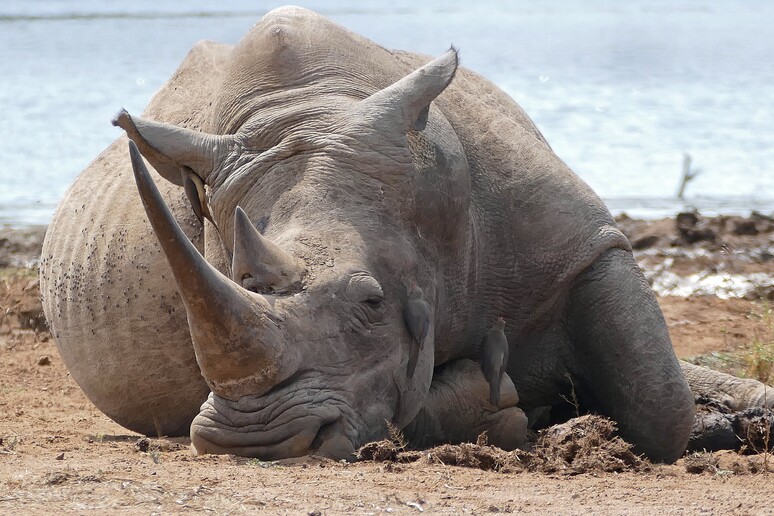For the first time ever, a test-tube rhino embryo has been successfully implanted into the uterus, starting a pregnancy. The experiment was conducted in Kenya by the international consortium BioRescue using an embryo fertilised in Italy at Avantea's laboratories in Cremona. Its success paves the way for implanting northern white rhino embryos to save the species from extinction, before the last two remaining females disappear.
The experiment started in September 2023, when a female southern white rhino named Curra, who was being looked after at the Ol Pejeta conservation reserve in Kenya, was selected as a surrogate mother. Two southern white rhino embryos produced at Avantea's laboratories were implanted into her womb. An ethical evaluation conducted by the University of Padua accompanied the embryo transfer to consider the possible scenarios and risks involved in the procedure.
Curra was monitored daily for two months until the first signs of a pregnancy were detected, but then she died of a bacterial infection brought on by heavy rain. Tests confirmed that she was pregnant with a healthy 70-day-old male foetus measuring 6.4 centimetres in length as a result of the transfer of one of the two test-tube embryos.
"This information testifies to the feasibility of the process and reduces the time needed to verify its success: we think we will be able to proceed with the transfer of northern white rhino embryos a year earlier than planned," comments Cesare Galli, co-founder and director of Avantea.
Riproduzione riservata © Copyright ANSA













